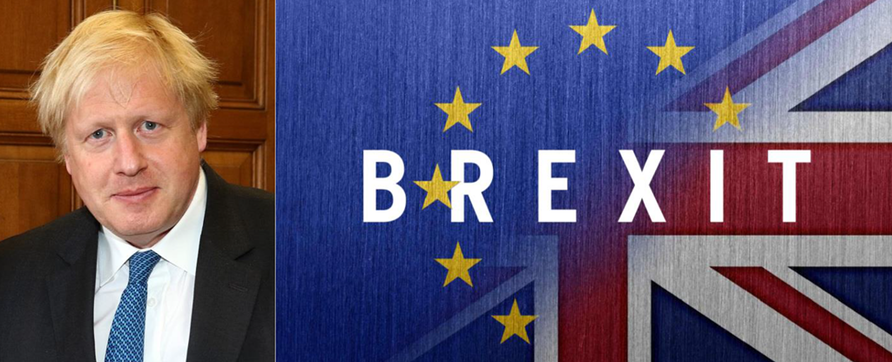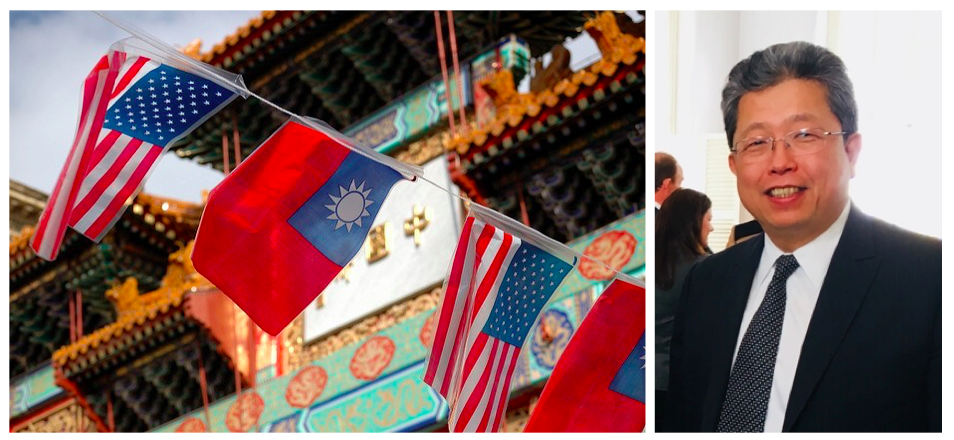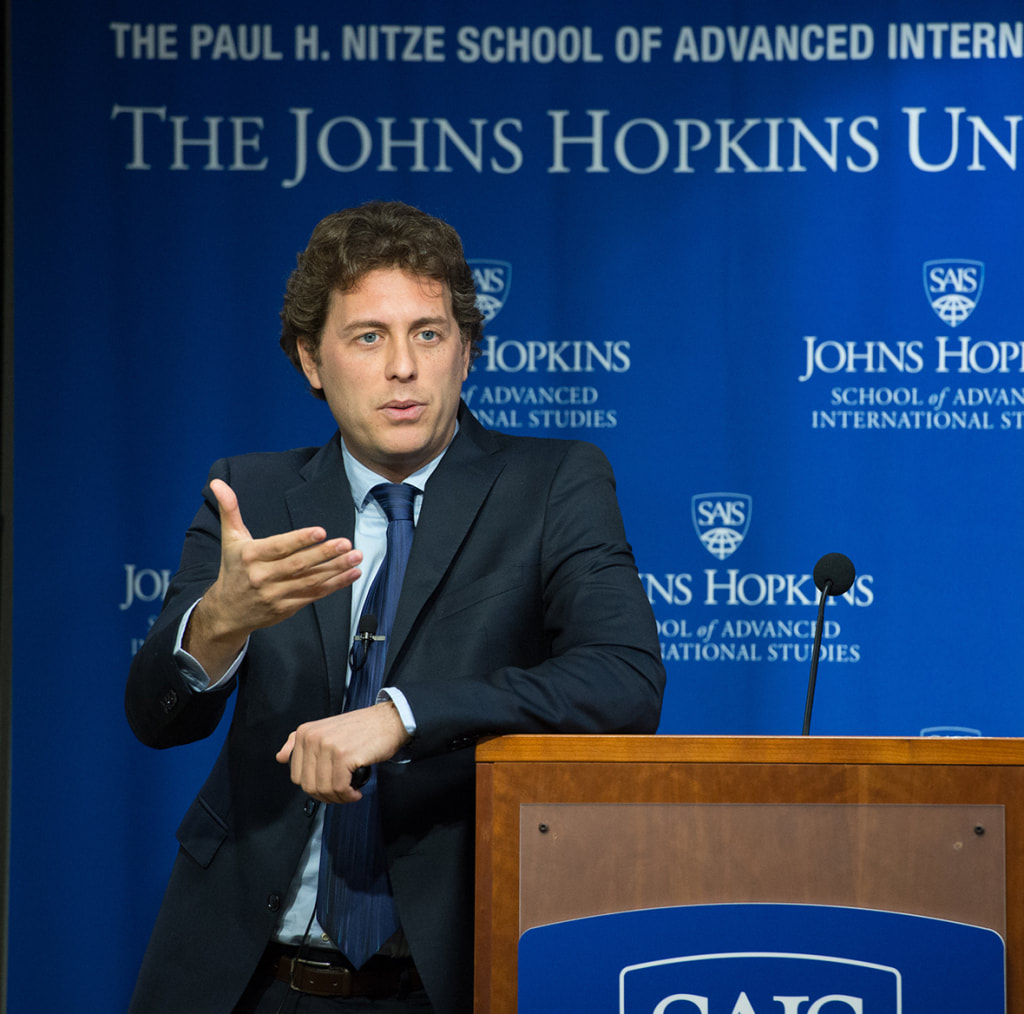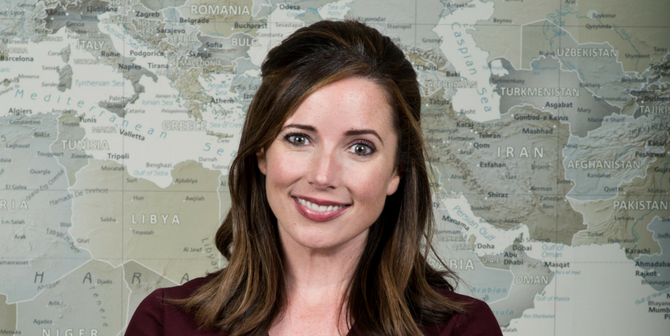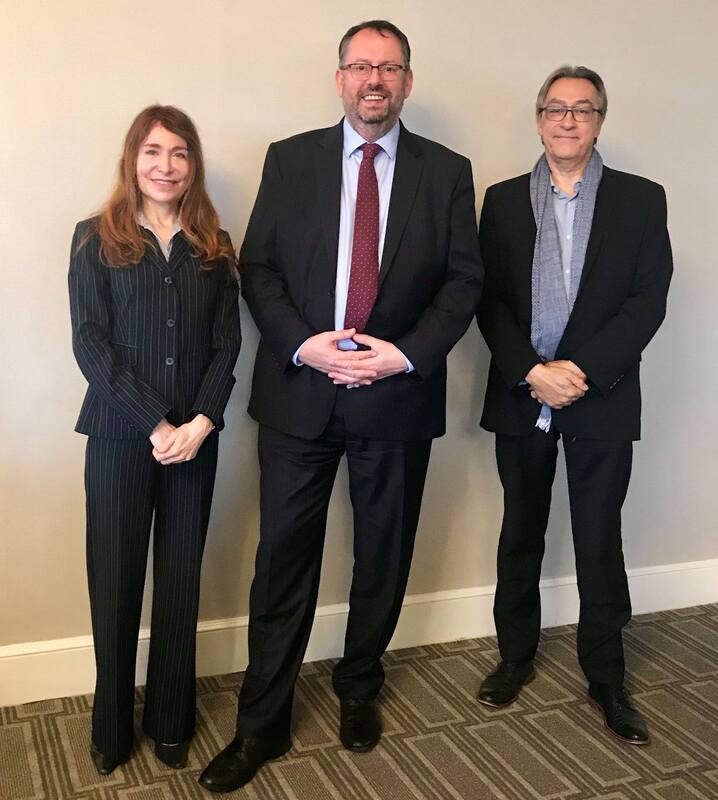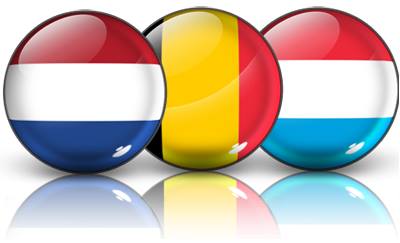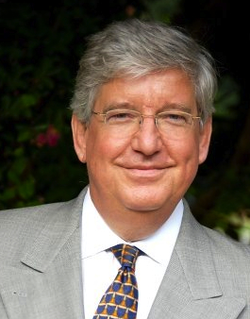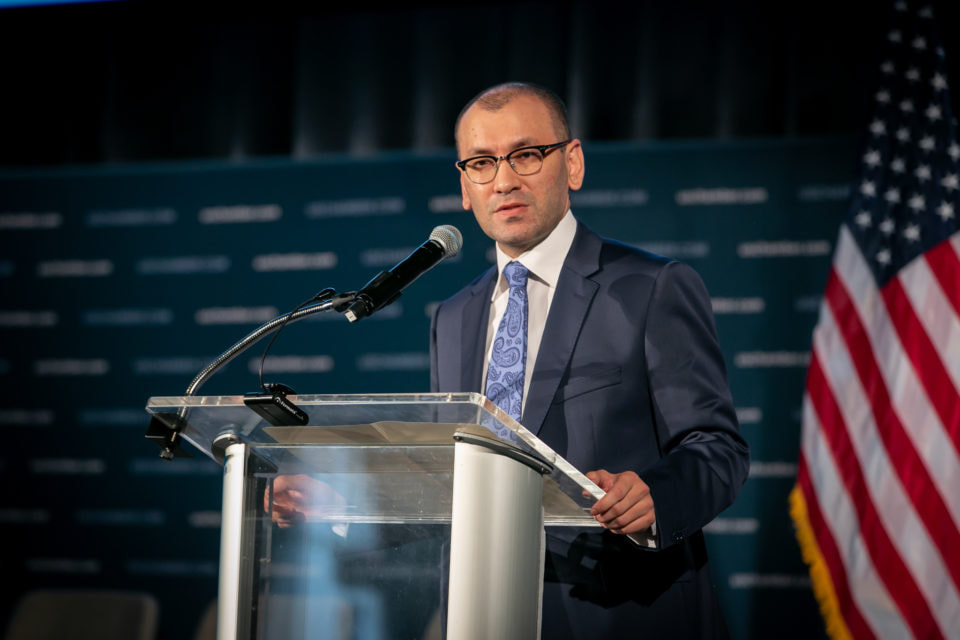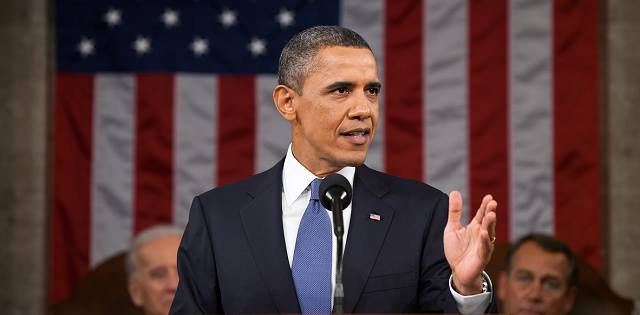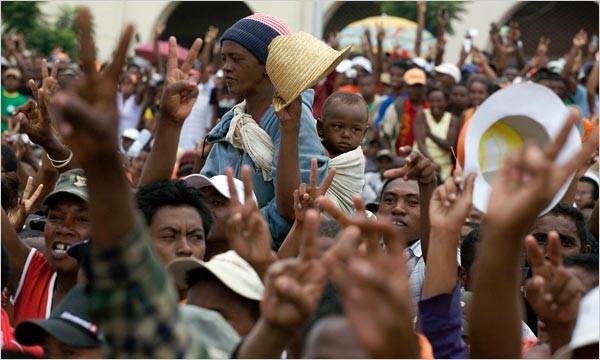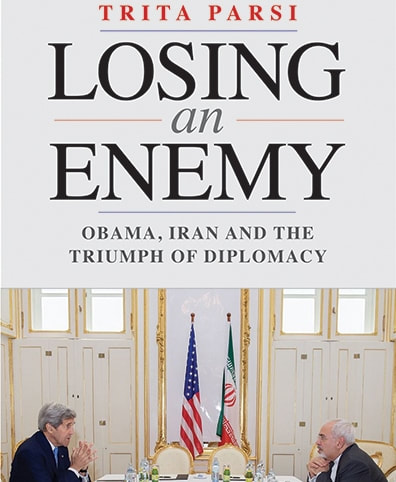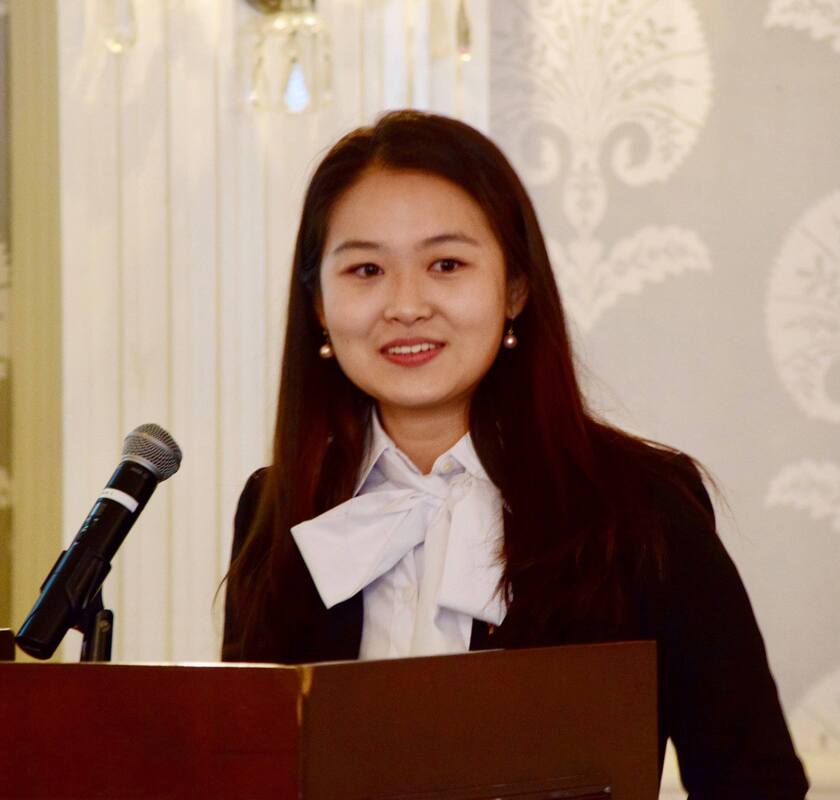The Distinguished Speaker Series is kindly presented by Blue Cross Blue Shield of South Carolina
His Excellency Jonatan Vseviov,
Ambassador of Estonia to the United States of America
Thursday, January 9, 2020
The Palmetto Club
The Palmetto Club
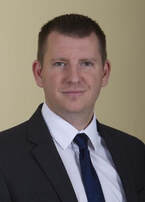
We are kicking off the new year with a special Distinguish Speaker Luncheon! Estonian Ambassador Jonatan Vseviov visits us to discuss Estonia, the importance of transatlantic relations, and the future of NATO. Estonia boasts a vibrant culture of innovation, technology, and international trade. The Baltic nation, a world-leader in cyber-security along with a unique e-government and e-commerce, has a partnership with South Carolina which has spawned mutually beneficial advances in commerce, research, and academic exchanges. Join us to learn more about the importance of SC/Estonian relations with its leading diplomat in the US!
Jonatan Vseviov, Ambassador of Estonia to the United States of America
Jonatan Vseviov serves as Estonia´s Ambassador to the United States since August 2018. This is his third diplomatic posting in Washington, DC.
Before assuming his current duties, Vseviov worked at the Estonian Ministry of Defense for 10 years, rising to the post of Permanent Secretary. Until his appointment as Permanent Secretary in January 2016, Mr. Vseviov served as the Undersecretary for Defense Planning, the Acting Undersecretary for Defense Policy, and Director of Policy Planning.
During his tenure at the Defense Ministry, Vseviov had a leading role in shaping Estonia´s defense policy both domestically as well as internationally. He is the author of the Concept for Comprehensive Approach to Defense (2009) and the National Defense Strategy of 2010 – documents that led to significant conceptual change in organizing defense in Estonia. In 2012, he was one of the leading authors of the National Defense Development Plan 2013-2022, which reset Estonia´s capability development onto a realistic basis, moving Estonian armed forces from a hollow structure to real – fully manned, equipped and sustained – capabilities. He has also been involved with the preparation and implementation of NATO’s present deterrence and defense posture, including the execution of NATO's enhanced Forward Presence in the Baltic States and Poland.
During his previous tours of duty in Washington, DC, Mr. Vseviov was involved with the expansion of the Visa Waiver Program for Estonian citizens. In light of the 2007 cyber-attacks on Estonia, he was engaged in securing the political support of the US, and in 2014 Mr. Vseviov worked on achieving additional assurance and deterrence measures from the US.
Jonatan Vseviov has completed military service and is a reserve officer. He is a graduate of the Department of Political Science at the University of Tartu and has earned a Master’s degree, with honors, in security studies from Georgetown University’s Edmund A. Walsh School of Foreign Service. He has been awarded the Third Class of the Order of the White Star by the President of Estonia, the First and Third Classes of the Cross of Merit of the Ministry of Defense, the Estonian Defense Forces distinguished service decoration (twice), the First Class Cross of Merit of the Estonian Foreign Intelligence Service and the Medal of Honorary Recognition by the Latvian Ministry of Defense.
From 2011 to 2013 Mr. Vseviov was the academic head of the Estonian National Defense Course. He’s been giving lectures on international relations as well as Estonian security and defense policy in several universities.
Jonatan Vseviov is married and the father of two children.
Jonatan Vseviov, Ambassador of Estonia to the United States of America
Jonatan Vseviov serves as Estonia´s Ambassador to the United States since August 2018. This is his third diplomatic posting in Washington, DC.
Before assuming his current duties, Vseviov worked at the Estonian Ministry of Defense for 10 years, rising to the post of Permanent Secretary. Until his appointment as Permanent Secretary in January 2016, Mr. Vseviov served as the Undersecretary for Defense Planning, the Acting Undersecretary for Defense Policy, and Director of Policy Planning.
During his tenure at the Defense Ministry, Vseviov had a leading role in shaping Estonia´s defense policy both domestically as well as internationally. He is the author of the Concept for Comprehensive Approach to Defense (2009) and the National Defense Strategy of 2010 – documents that led to significant conceptual change in organizing defense in Estonia. In 2012, he was one of the leading authors of the National Defense Development Plan 2013-2022, which reset Estonia´s capability development onto a realistic basis, moving Estonian armed forces from a hollow structure to real – fully manned, equipped and sustained – capabilities. He has also been involved with the preparation and implementation of NATO’s present deterrence and defense posture, including the execution of NATO's enhanced Forward Presence in the Baltic States and Poland.
During his previous tours of duty in Washington, DC, Mr. Vseviov was involved with the expansion of the Visa Waiver Program for Estonian citizens. In light of the 2007 cyber-attacks on Estonia, he was engaged in securing the political support of the US, and in 2014 Mr. Vseviov worked on achieving additional assurance and deterrence measures from the US.
Jonatan Vseviov has completed military service and is a reserve officer. He is a graduate of the Department of Political Science at the University of Tartu and has earned a Master’s degree, with honors, in security studies from Georgetown University’s Edmund A. Walsh School of Foreign Service. He has been awarded the Third Class of the Order of the White Star by the President of Estonia, the First and Third Classes of the Cross of Merit of the Ministry of Defense, the Estonian Defense Forces distinguished service decoration (twice), the First Class Cross of Merit of the Estonian Foreign Intelligence Service and the Medal of Honorary Recognition by the Latvian Ministry of Defense.
From 2011 to 2013 Mr. Vseviov was the academic head of the Estonian National Defense Course. He’s been giving lectures on international relations as well as Estonian security and defense policy in several universities.
Jonatan Vseviov is married and the father of two children.
Boris Johnson and the Future of Brexit
with Distinguished Speaker, Alexandra Hall Hall,
Chief British Brexit Counsellor to the US
August 1, 2019
Palmetto Club
Chief British Brexit Counsellor to the US
August 1, 2019
Palmetto Club
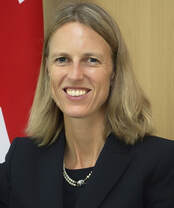
Boris Johnson has been announced to succeed Theresa May as Britain’s Prime Minister. Britain is scheduled to leave the European Union on October 31, 2019. Johnson, a Brexit advocate, has said the departure will happen with or without a deal. Yet, the country remains divided by the issue.
Join is for a special Distinguished Speaker luncheon with Alexandra Hall Hall, the UK’s chief Brexit Counsellor to the US at the British Embassy in DC, to learn more about the incoming Prime Minister, what the future holds for the Brexit process, and its implications for South Carolina.
Alexandra Hall Hall is the UK’s Brexit Counsellor at the British Embassy in Washington. She is responsible for spearheading the work of explaining the UK’s departure from the European Union to US audiences, and promoting a continuing strong US-UK relationship post-Brexit.
As a British diplomat, Alex has 33 years of experience serving in Bangkok, Washington, New Delhi and Bogota, and has been the UK’s Ambassador to Georgia (2013-2016). Her work for the UK government has seen her undertake a variety of roles in London, including work on the Middle East Peace Process, UN humanitarian affairs, Head of the Human Rights Department in the Foreign and Commonwealth Office, and as an advisor on European Union Affairs during the negotiations on the EU’s Amsterdam Treaty.
In 2002-2004, Alex undertook a two year secondment to the US State Department working on human rights and Middle East democracy promotion issues; as well as a brief attachment to the Pentagon during the Iraq War. She has taught as an Adjunct Professor at George Washington University, and most recently – from 2016-2018 – was a Senior non-Resident Fellow at the Washington-based think tank, the Atlantic Council.
Join is for a special Distinguished Speaker luncheon with Alexandra Hall Hall, the UK’s chief Brexit Counsellor to the US at the British Embassy in DC, to learn more about the incoming Prime Minister, what the future holds for the Brexit process, and its implications for South Carolina.
Alexandra Hall Hall is the UK’s Brexit Counsellor at the British Embassy in Washington. She is responsible for spearheading the work of explaining the UK’s departure from the European Union to US audiences, and promoting a continuing strong US-UK relationship post-Brexit.
As a British diplomat, Alex has 33 years of experience serving in Bangkok, Washington, New Delhi and Bogota, and has been the UK’s Ambassador to Georgia (2013-2016). Her work for the UK government has seen her undertake a variety of roles in London, including work on the Middle East Peace Process, UN humanitarian affairs, Head of the Human Rights Department in the Foreign and Commonwealth Office, and as an advisor on European Union Affairs during the negotiations on the EU’s Amsterdam Treaty.
In 2002-2004, Alex undertook a two year secondment to the US State Department working on human rights and Middle East democracy promotion issues; as well as a brief attachment to the Pentagon during the Iraq War. She has taught as an Adjunct Professor at George Washington University, and most recently – from 2016-2018 – was a Senior non-Resident Fellow at the Washington-based think tank, the Atlantic Council.
Taiwan-US & 40 Years of the Taiwan Relations Act
May 22, 2019
Palmetto Club
Palmetto Club
Join us for a luncheon on Taiwan-United States Relations and the 40th Anniversary of the Taiwan Relations Act with Distinguish Speaker Vincent Jing-Yen Liu, Director General of the Taipei Economic and Cultural Office in Atlanta.
2019 marks the 40th anniversary of the Taiwan Relations Act (TRA). Facilitated by the TRA, Taiwan has become one of the leading free democratic countries in the world.
The Republic of China (Taiwan) and the United States are longstanding allies who both deeply cherish the common values of freedom, democracy, human rights, and the rule of law. With our shared values, Taiwan and the US have laid the groundwork for regional prosperity. Taiwan is now the US’s 9th largest trading partner, and the US is Taiwan’s 2nd largest trading partner. Locally significant, Columbia has enjoyed a sister city relationship since 2014 with Taichung, Taiwan's second most populous city.
Join us as Director General Liu shares the importance of the TRA and the relationships and future vision between our two countries.
Mr. Vincent J.Y. Liu is the Director General of the Taipei Economic and Cultural Office (TECO) in Atlanta. He started his assignment at the TECO Atlanta office in midtown on December 19, 2016, arriving in Atlanta from Taipei with his family to assume the posting.
DG Liu oversees the TECO Atlanta jurisdiction that covers the Southeastern states of Alabama, Georgia, Kentucky, North Carolina, South Carolina and Tennessee. In addition to consular services, TECO Atlanta is also dedicated to promoting cooperation and mutual understanding between Taiwan and the Southeastern United States in economic, cultural, and educational areas.
The Director General is a career diplomat of Taiwan. Prior to Atlanta, he was posted on official assignments to Moscow, Washington DC, New York, and Singapore.
He earned two advanced degrees in Master of Public Administration from the Kennedy School of Government of Harvard University in 2005. He also has a Master of International Relations and a BA in Diplomacy from National Chengchi University in Taiwan.
Born in a Catholic family, DG Liu is a devoted parishioner of the Holy Spirit Catholic Church of Atlanta. In April 2018, he was bestowed the title, Member of the Martin Luther King Jr. International College of Ministers and Laity. He is married to Gloria Chiao and has two children.
2019 marks the 40th anniversary of the Taiwan Relations Act (TRA). Facilitated by the TRA, Taiwan has become one of the leading free democratic countries in the world.
The Republic of China (Taiwan) and the United States are longstanding allies who both deeply cherish the common values of freedom, democracy, human rights, and the rule of law. With our shared values, Taiwan and the US have laid the groundwork for regional prosperity. Taiwan is now the US’s 9th largest trading partner, and the US is Taiwan’s 2nd largest trading partner. Locally significant, Columbia has enjoyed a sister city relationship since 2014 with Taichung, Taiwan's second most populous city.
Join us as Director General Liu shares the importance of the TRA and the relationships and future vision between our two countries.
Mr. Vincent J.Y. Liu is the Director General of the Taipei Economic and Cultural Office (TECO) in Atlanta. He started his assignment at the TECO Atlanta office in midtown on December 19, 2016, arriving in Atlanta from Taipei with his family to assume the posting.
DG Liu oversees the TECO Atlanta jurisdiction that covers the Southeastern states of Alabama, Georgia, Kentucky, North Carolina, South Carolina and Tennessee. In addition to consular services, TECO Atlanta is also dedicated to promoting cooperation and mutual understanding between Taiwan and the Southeastern United States in economic, cultural, and educational areas.
The Director General is a career diplomat of Taiwan. Prior to Atlanta, he was posted on official assignments to Moscow, Washington DC, New York, and Singapore.
He earned two advanced degrees in Master of Public Administration from the Kennedy School of Government of Harvard University in 2005. He also has a Master of International Relations and a BA in Diplomacy from National Chengchi University in Taiwan.
Born in a Catholic family, DG Liu is a devoted parishioner of the Holy Spirit Catholic Church of Atlanta. In April 2018, he was bestowed the title, Member of the Martin Luther King Jr. International College of Ministers and Laity. He is married to Gloria Chiao and has two children.
Brexit and the Future of European Integration
April 25, 2019
Palmetto Club
Palmetto Club
Brexit and the Future of European Integration: A luncheon with Matthias Matthijs, Johns Hopkins University
As a follow up to our program in March with the British Consul General, please join us to hear Professor Matthijs, Johns Hopkins University, discuss the implications of Brexit. Co-hosted with the Walker Institute of International and Area Studies.
The 2016 vote to leave the European Union has profoundly changed British politics and will have consequences for the future path of European integration. While some argue that a British exit will make the EU more cohesive and pave the path for ‘ever closer union,’ it is clear that Brexit is also a symptom of the ongoing problems with the European Union. While most experts agree that the future of the EU is a ‘differentiated’ one with multiple speeds, the current setup of the single market and the Eurozone make such flexible integration incredibly hard to do in practice. This means that the inherent tensions in the EU will not go away when — or if — the UK leaves.
Matthias Matthijs is Assistant Professor of International Political Economy at Johns Hopkins University’s School of Advanced International Studies. His research focuses on the politics of economic crises, the role of economic ideas in economic policymaking, the politics of inequality, the limits of regional integration, and the erosion of democratic legitimacy in the European Union. He has published widely on the economy of European integration. His most recent book, with Mark Blyth, is The Future of the Euro, published by Oxford University Press in 2015.
He previously taught at American University's School of International Service (from 2008 to 2012) in Washington, DC, and was a visiting assistant professor at SAIS Europe in Bologna (spring 2010). He has also served as a consultant for the World Bank’s Foreign Investment Advisory Service (FIAS) from 2005 to 2007 and for the Economist Intelligence Unit from 2009 to 2011. He is a frequent commentator on international affairs in US and international media.
As a follow up to our program in March with the British Consul General, please join us to hear Professor Matthijs, Johns Hopkins University, discuss the implications of Brexit. Co-hosted with the Walker Institute of International and Area Studies.
The 2016 vote to leave the European Union has profoundly changed British politics and will have consequences for the future path of European integration. While some argue that a British exit will make the EU more cohesive and pave the path for ‘ever closer union,’ it is clear that Brexit is also a symptom of the ongoing problems with the European Union. While most experts agree that the future of the EU is a ‘differentiated’ one with multiple speeds, the current setup of the single market and the Eurozone make such flexible integration incredibly hard to do in practice. This means that the inherent tensions in the EU will not go away when — or if — the UK leaves.
Matthias Matthijs is Assistant Professor of International Political Economy at Johns Hopkins University’s School of Advanced International Studies. His research focuses on the politics of economic crises, the role of economic ideas in economic policymaking, the politics of inequality, the limits of regional integration, and the erosion of democratic legitimacy in the European Union. He has published widely on the economy of European integration. His most recent book, with Mark Blyth, is The Future of the Euro, published by Oxford University Press in 2015.
He previously taught at American University's School of International Service (from 2008 to 2012) in Washington, DC, and was a visiting assistant professor at SAIS Europe in Bologna (spring 2010). He has also served as a consultant for the World Bank’s Foreign Investment Advisory Service (FIAS) from 2005 to 2007 and for the Economist Intelligence Unit from 2009 to 2011. He is a frequent commentator on international affairs in US and international media.
Diplomacy Begins Here: A Conversation with Global Ties
April 17, 2019
Palmetto Club
Palmetto Club
Diplomacy Begins Here: A Conversation with Katherine Brown,
President and CEO of Global Ties U.S.
Co-sponsored by the Global Studies at USC program at University of South Carolina in conjunction with the Global Café series
The most effective form of diplomacy is simple: people meeting people in person to talk about shared interests. The Columbia World Affairs Council has worked with the Palmetto Council of International Visitors (Columbia Council For Internationals) for years to bring international delegations visiting the United States via the State Department to Columbia to meet with colleagues in their field and enjoy our beautiful city. Global Ties is a nonprofit at the center of making such exchanges possible.
Please join us for a luncheon with Katherine Brown, president and CEO of Global Ties, to learn more about citizen diplomacy and the enormous impact it has on our city, universities, culture, economy, and world.
In April 2018, Katherine Brown became president and CEO of Global Ties U.S., a nonprofit organization that makes international exchange programs more effective by fostering deep connections between current and future leaders.
President and CEO of Global Ties U.S.
Co-sponsored by the Global Studies at USC program at University of South Carolina in conjunction with the Global Café series
The most effective form of diplomacy is simple: people meeting people in person to talk about shared interests. The Columbia World Affairs Council has worked with the Palmetto Council of International Visitors (Columbia Council For Internationals) for years to bring international delegations visiting the United States via the State Department to Columbia to meet with colleagues in their field and enjoy our beautiful city. Global Ties is a nonprofit at the center of making such exchanges possible.
Please join us for a luncheon with Katherine Brown, president and CEO of Global Ties, to learn more about citizen diplomacy and the enormous impact it has on our city, universities, culture, economy, and world.
In April 2018, Katherine Brown became president and CEO of Global Ties U.S., a nonprofit organization that makes international exchange programs more effective by fostering deep connections between current and future leaders.
Germany today: Facing its past in today’s Europe
April 13, 2019
University of South Carolina College of Education
University of South Carolina College of Education
Join us from 7:00 to 8:15 at Wardlaw Building, Room 126, University of South Carolina College of Education for a FREE panel discussion with:
Prof. Dr. Matthias Stickler, Scientific Director of the Institute for University History, Julius-Maximilians-University of Würzburg
Dr. Robert Sigel, Office of the Commissioner on Jewish Life and Combatting Anti-Semitism, for Remembrance, and Historical Heritage, Bavarian State Government
Dr. Stefanie Pilzweger-Steiner, Senior Research Advisor, Dachau Concentration Camp Memorial Site
Sarah Oettl, Bavarian State Ministry of Education, Culture of Remembrance, Prevention of Extremism, and International Cooperation in Education
Our four distinguished panelists from Germany will discuss how Germany continues to grapple with its history and what it means for the present both within Germany and in Europe more broadly. Representing leading institutions across sectors—higher education, government, and Holocaust memorial sites—the participants bring a wealth of expertise about the Holocaust, its aftermath, and its antecedents. Their expertise spans imperial Germany, resistance during the Holocaust, student movements, post-war trials and the Rule of Law.
Please join us immediately afterward for a reception at Hotel Trundle (1224 Taylor St) from 8:30 to 10:00 p.m. to welcome our international guests and continue the discussion.
Prof. Dr. Matthias Stickler, Scientific Director of the Institute for University History, Julius-Maximilians-University of Würzburg
Dr. Robert Sigel, Office of the Commissioner on Jewish Life and Combatting Anti-Semitism, for Remembrance, and Historical Heritage, Bavarian State Government
Dr. Stefanie Pilzweger-Steiner, Senior Research Advisor, Dachau Concentration Camp Memorial Site
Sarah Oettl, Bavarian State Ministry of Education, Culture of Remembrance, Prevention of Extremism, and International Cooperation in Education
Our four distinguished panelists from Germany will discuss how Germany continues to grapple with its history and what it means for the present both within Germany and in Europe more broadly. Representing leading institutions across sectors—higher education, government, and Holocaust memorial sites—the participants bring a wealth of expertise about the Holocaust, its aftermath, and its antecedents. Their expertise spans imperial Germany, resistance during the Holocaust, student movements, post-war trials and the Rule of Law.
Please join us immediately afterward for a reception at Hotel Trundle (1224 Taylor St) from 8:30 to 10:00 p.m. to welcome our international guests and continue the discussion.
Brexit Breakfast with British Consulate General
March 12, 2019
Palmetto Club
Palmetto Club
BREXIT Breakfast: A Conversation with British Consul General Andrew Staunton & Ms. Alexandra Hall Hall, lead Brexit counselor to the US.
Brexit - What will happen? The current deadline for Britain’s departure from the European Union at the end of March is coming fast, with a complicated global impact, and no one is still quite sure how it will work.
Join our distinguished speakers, British Consul General Andrew Staunton and Alexandra Hall Hall, for a discussion presenting the latest updates regarding Brexit and its implications for trade with South Carolina.
The conversation will be moderated by Morgan Crapps, Parker Poe Consulting, and a Q&A will follow.
Brexit - What will happen? The current deadline for Britain’s departure from the European Union at the end of March is coming fast, with a complicated global impact, and no one is still quite sure how it will work.
Join our distinguished speakers, British Consul General Andrew Staunton and Alexandra Hall Hall, for a discussion presenting the latest updates regarding Brexit and its implications for trade with South Carolina.
The conversation will be moderated by Morgan Crapps, Parker Poe Consulting, and a Q&A will follow.
Benelux: Celebrating 60 Years of Union
January 8, 2019
Palmetto Club
Palmetto Club
Join us for a luncheon and panel discussion at CWAC’s first event of 2019! William De Baets, Consul General of Belgium; Georges Hoffmann, Honorary Consul of Luxembourg; and Dr. Marc van Essen, USC Darla Moore School of Business (representing the Netherlands), discuss the history and role of the Benelux Union in the European Union and its future.
On Feb. 3, 1958, the Treaty of the Benelux Economic Union was signed by Belgium, the Netherlands, and Luxembourg. The agreement created the first completely free international labor market. Benelux was once regarded as a promising experiment by which neighboring countries would form customs unions that might then merge into wider economic unions.
Now, 60 years later, our distinguished speakers examine the impact of this landmark political and economic union and precursor of European integration.
On Feb. 3, 1958, the Treaty of the Benelux Economic Union was signed by Belgium, the Netherlands, and Luxembourg. The agreement created the first completely free international labor market. Benelux was once regarded as a promising experiment by which neighboring countries would form customs unions that might then merge into wider economic unions.
Now, 60 years later, our distinguished speakers examine the impact of this landmark political and economic union and precursor of European integration.
Breakfast Presentation by the Sultanate of Oman
October 3, 2018
Darla Moore School of Business
Darla Moore School of Business
Join us for a morning presentation and breakfast! Dr. Robert Rolfe, University of South Carolina, joins our distinguished speaker, Ms. Haura Saud Al-Wahaibi, Commercial Attaché, Embassy of the Sultanate of Oman, to discuss US-Oman relations, as well as the business environment and investment opportunities in Oman with an attention to trade, investment sectors, ports and free zones, and Oman's position in the global index. This event is perfect for students interested in international business and trade, but also for the larger business community to explore the current business environment in Oman and investment opportunities.
The Columbia World Affairs Council is proud to present Engage America: Oman 2018, a program series sponsored by the Sultan Qaboos Cultural Center and the The World Affairs Councils of America, focused on enhancing Americans' understanding of the country of Oman and its important ties to the U.S.
Haura Al Wahaibi is the Commercial Attaché at the embassy of the Sultanate of Oman in Washington D.C. She is working to expand the trade relationship between Oman and U.S., and to promote & facilitate inward investment and trade for the Sultanate. Prior to her appointment in Washington D.C., Ms. Al Wahaibi served several years in market research, investment promotion & investment facilitation. She led the project of the investment Promotion Strategy for the Sultanate of Oman in 2015. In addition, she was involved in developing The 9th Five-Year Development Plan (2016-2020) which is the final plan constituting Oman Vision 2020 and the preliminary plan for Oman Vision 2040. She also worked closely with private sector and organized several Investment Meet, B2B events & roundtable meetings in different countries & markets to promote investment opportunities & attract FDI in Oman.
Dr. Robert Rolfe came to USC in 1983 after completing his Ph.D. at the University of Oklahoma. He has also been a visiting professor at the University of International Business and Economics in Beijing and at the Vienna University of Economics and Business Administration in Vienna, Austria. From August 2001 to May 2005, he was executive director of the International MBA program at the Darla Moore School of Business.
Speakers: Haura Al Wahaibi, Commercial Attache, embassy of the Sultanate of Oman in DC, Dr. Robert Rolfe- USC, former Exec Director IMBA
Partners: Moore School, WACA, Sultan Qaboos Cultural Center
The Columbia World Affairs Council is proud to present Engage America: Oman 2018, a program series sponsored by the Sultan Qaboos Cultural Center and the The World Affairs Councils of America, focused on enhancing Americans' understanding of the country of Oman and its important ties to the U.S.
Haura Al Wahaibi is the Commercial Attaché at the embassy of the Sultanate of Oman in Washington D.C. She is working to expand the trade relationship between Oman and U.S., and to promote & facilitate inward investment and trade for the Sultanate. Prior to her appointment in Washington D.C., Ms. Al Wahaibi served several years in market research, investment promotion & investment facilitation. She led the project of the investment Promotion Strategy for the Sultanate of Oman in 2015. In addition, she was involved in developing The 9th Five-Year Development Plan (2016-2020) which is the final plan constituting Oman Vision 2020 and the preliminary plan for Oman Vision 2040. She also worked closely with private sector and organized several Investment Meet, B2B events & roundtable meetings in different countries & markets to promote investment opportunities & attract FDI in Oman.
Dr. Robert Rolfe came to USC in 1983 after completing his Ph.D. at the University of Oklahoma. He has also been a visiting professor at the University of International Business and Economics in Beijing and at the Vienna University of Economics and Business Administration in Vienna, Austria. From August 2001 to May 2005, he was executive director of the International MBA program at the Darla Moore School of Business.
Speakers: Haura Al Wahaibi, Commercial Attache, embassy of the Sultanate of Oman in DC, Dr. Robert Rolfe- USC, former Exec Director IMBA
Partners: Moore School, WACA, Sultan Qaboos Cultural Center
Germany Today with Honorary Consul Klaus Becker
September 6, 2018
Palmetto Club
Palmetto Club
Germany Today—in Europe and in the Carolinas: Reflections & Touristic Culinaries
Join us for a look at Germany’s current zeitgeist in Europe and the Carolinas with Klaus Becker, Honorary Consul of the Federal Republic of Germany to Western North Carolina.
Speaker bio:
Klaus Becker was born in Marburg in 1953, grew up in Germany where he studied business and national economics and has a master degree from Ruhr-Universität in Bochum. Since 1979, he has lived in Charlotte, North Carolina, where he is entrepreneurially active in the international steel trade for the past 40 years. He presided over the Charlotte World Trade Association in the mid-nineties and was president of the German-American Chamber of Commerce in North Carolina for seven years. In January of 2014, he was appointed Honorary Consul of the Federal Republic of Germany for Western North Carolina. In this function, he founded The N.C. Zeitgeist Foundation which coordinates his consular activities. It is the goal of the Foundation to further German cultural, journalistic, political, and historic aspects. In 2015, the Foundation organized the First German Opera Ball in Charlotte which was attended by Ambassador Dr. Peter Wittig and his spouse.
It was a highlight of the Foundation in 2016 to invite Bayern München to come to North Carolina. The world renowned soccer club accepted and played against Inter Milan in Charlotte on July 30, 2016.
Partners: Klaus Becker, Honorary Consul of the Federal Republic of Germany to Western North Carolina
Sponsors: Global Studies- USC, Parker Poe, Buchmaier Law Firm, Bauknight Pietras & Stormer
Join us for a look at Germany’s current zeitgeist in Europe and the Carolinas with Klaus Becker, Honorary Consul of the Federal Republic of Germany to Western North Carolina.
Speaker bio:
Klaus Becker was born in Marburg in 1953, grew up in Germany where he studied business and national economics and has a master degree from Ruhr-Universität in Bochum. Since 1979, he has lived in Charlotte, North Carolina, where he is entrepreneurially active in the international steel trade for the past 40 years. He presided over the Charlotte World Trade Association in the mid-nineties and was president of the German-American Chamber of Commerce in North Carolina for seven years. In January of 2014, he was appointed Honorary Consul of the Federal Republic of Germany for Western North Carolina. In this function, he founded The N.C. Zeitgeist Foundation which coordinates his consular activities. It is the goal of the Foundation to further German cultural, journalistic, political, and historic aspects. In 2015, the Foundation organized the First German Opera Ball in Charlotte which was attended by Ambassador Dr. Peter Wittig and his spouse.
It was a highlight of the Foundation in 2016 to invite Bayern München to come to North Carolina. The world renowned soccer club accepted and played against Inter Milan in Charlotte on July 30, 2016.
Partners: Klaus Becker, Honorary Consul of the Federal Republic of Germany to Western North Carolina
Sponsors: Global Studies- USC, Parker Poe, Buchmaier Law Firm, Bauknight Pietras & Stormer
Doing Business with Saudi Arabia
August 20, 2018
Palmetto Club
Palmetto Club
"Doing Business with Saudi Arabia" will educate members on Saudi Vision 2030, major economic transformation initiative to reduce the country’s dependence on oil, diversify its economy, and develop public service sectors such as health, education, infrastructure, recreation and tourism. Better understand US/Saudi trade and investment opportunities in aviation, automotive, specialty chemicals, pharmaceuticals, healthcare equipment and services, IT, cybersecurity, education and training, and fast moving consumer goods (among others).
Partners: David Callahan, Senior VP of Member and Business Advisory Services- US Saudi Arabian Business Council (USSABC)
Partners: David Callahan, Senior VP of Member and Business Advisory Services- US Saudi Arabian Business Council (USSABC)
Lunch with Uzbekistan Ambassador H.E. Javlon Vakhabov
June 20, 2018
Palmetto Club
Palmetto Club
Join us for a special Distinguished Speaker luncheon with H.E. Javlon Vakhabov, Ambassador Extraordinary and Plenipotentiary of the Republic of Uzbekistan to the United States of America.
This event is anyone interested in learning more about Uzbekistan, especially companies interested in discussing trade and investment issues. The Government of Uzbekistan has stated that it is open to interacting with interested businesses from all sectors. On May 15, 2018, in reiteration of their commitment, the Uzbek Government signed export and investment agreements worth $4.85bn on the sidelines of the first historical visit of the Uzbek President to the White House.
Located in Central Asia, Uzbekistan is home to almost 30 million people, has rich natural resources base, and enjoys annual GDP growth of 8%. Please join our discussion with the Uzbek Ambassador on commercial opportunities for U.S. companies and how to make the first step towards doing business in Uzbekistan.
Partners: American-Uzbekistan Chamber of Commerce, H.E. Javlon Vakhabov Ambassador Extraordinary and Plenipotentiary of the Republic of Uzbekistan to the United States of America
This event is anyone interested in learning more about Uzbekistan, especially companies interested in discussing trade and investment issues. The Government of Uzbekistan has stated that it is open to interacting with interested businesses from all sectors. On May 15, 2018, in reiteration of their commitment, the Uzbek Government signed export and investment agreements worth $4.85bn on the sidelines of the first historical visit of the Uzbek President to the White House.
Located in Central Asia, Uzbekistan is home to almost 30 million people, has rich natural resources base, and enjoys annual GDP growth of 8%. Please join our discussion with the Uzbek Ambassador on commercial opportunities for U.S. companies and how to make the first step towards doing business in Uzbekistan.
Partners: American-Uzbekistan Chamber of Commerce, H.E. Javlon Vakhabov Ambassador Extraordinary and Plenipotentiary of the Republic of Uzbekistan to the United States of America
Barack Obama and the Dilemmas of American Leadership
April 11, 2018
Maxcy College
Maxcy College
Join award-winning author and Italian scholar, Mario Del Pero, for an insightful look into the origins of U.S. foreign policy known as the “Obama Doctrine” -- examining its strategic assumptions, the role it attributed to military force, the connection between domestic and foreign policy choices, and the discourse used to narrate and convey such doctrine. During the luncheon, Mario discusses Obama’s foreign policy by focusing on the new challenges the post-2008 United States had to address, and by highlighting the consequences of the full manifestation of some inner contradictions in the model of leadership built and relaunched by the U.S. after the crisis, and apparent demise, of U.S. primacy in the 1970s.
During his eight years in power, Obama was called to confront a more general decline, absolute and relative, of U.S. power and influence, accelerated and intensified (but not caused) by the strategic mistakes of his predecessor. His response was to re-offer a cosmopolitan and internationalist discourse, centered on his persona and unique global biography, and to abandon some deeply ingrained imperial codes of contemporary U.S. interventionism. The mixed results and numerous ambiguities of Obama’s foreign policy notwithstanding, this strategic and rhetorical shift has marked a significant departure from some of the basic tenets of post-1945 U.S. global strategies.
Mario Del Pero is Professor of International History and U.S. Foreign Relations at the Institut d’études politiques/ Sciences Po of Paris. His research focuses on the history of U.S. Foreign Relations, particularly during the Cold War. Among his most recent publications are Otto anni con Obama [Eight Years with Obama] (Milan, Feltrinelli, 2017, which won the Milan International Book Award); Libertà e Impero. Gli Stati Uniti e il Mondo, 1776-2011 [Empire and Liberty. The United States and the World, 1776-2011] (Rome-Bari, Laterza, 2011); The Eccentric Realist. Henry Kissinger and the Shaping of American Foreign Policy (Ithaca, NY, Cornell University Press, 2009) and “’Which Chile, Allende’? Henry Kissinger and the Portuguese Revolution”, Cold War History, 4, 2011. He is currently working on a research on U.S. evangelical missions in early Cold War Italy.
Partners: Maxcy College, Mario Del Pero- award-winning author and Italian scholar/ Professor of International History and US Foreign Relations at Institut d’etudes politiques/ Sciences Po of Paris.
During his eight years in power, Obama was called to confront a more general decline, absolute and relative, of U.S. power and influence, accelerated and intensified (but not caused) by the strategic mistakes of his predecessor. His response was to re-offer a cosmopolitan and internationalist discourse, centered on his persona and unique global biography, and to abandon some deeply ingrained imperial codes of contemporary U.S. interventionism. The mixed results and numerous ambiguities of Obama’s foreign policy notwithstanding, this strategic and rhetorical shift has marked a significant departure from some of the basic tenets of post-1945 U.S. global strategies.
Mario Del Pero is Professor of International History and U.S. Foreign Relations at the Institut d’études politiques/ Sciences Po of Paris. His research focuses on the history of U.S. Foreign Relations, particularly during the Cold War. Among his most recent publications are Otto anni con Obama [Eight Years with Obama] (Milan, Feltrinelli, 2017, which won the Milan International Book Award); Libertà e Impero. Gli Stati Uniti e il Mondo, 1776-2011 [Empire and Liberty. The United States and the World, 1776-2011] (Rome-Bari, Laterza, 2011); The Eccentric Realist. Henry Kissinger and the Shaping of American Foreign Policy (Ithaca, NY, Cornell University Press, 2009) and “’Which Chile, Allende’? Henry Kissinger and the Portuguese Revolution”, Cold War History, 4, 2011. He is currently working on a research on U.S. evangelical missions in early Cold War Italy.
Partners: Maxcy College, Mario Del Pero- award-winning author and Italian scholar/ Professor of International History and US Foreign Relations at Institut d’etudes politiques/ Sciences Po of Paris.
The Political Crisis of March 2009 in Madagascar
March 15, 2018
Atlantic Academy of Columbia
Atlantic Academy of Columbia
A Case Study Of Conflict And Conflict Mediation presented by Dr. Dr. Adrien M. Ratsimbaharison, Department Of Social Sciences and Criminal Justice, Benedict College, Columbia, SC.
Since Independence in 1960, Madagascar has faced several periods of instability and crisis, as well as the threat of civil war. These periods were cyclical: each time the country made some significant economic and social progress, an unexpected crisis would bring it to a halt. The crisis of March 2009 and the long periods of political stability before and after this event were dramatic in the history of Madagascar. They led to the death of over one hundred people and took many observers by surprise. Ratsimbaharison focuses on the events of 2009, showing how a brewing conflict between the government of Marc Ravalomanana and the opposition led by Andry Rajoelina escalated, using it as a case for the study of further crises in Madagascar or other African countries.
Ratsimbaharison adopts a conflict approach to the study of crisis. Instead of focusing on external symptoms (street protests, violence, looting, massacre of protesters, military mutiny, etc.), or condemning it as a “coup d’état,” he analyzes the crisis as part of an ongoing conflict between the government and the opposition. In doing so, he uncovers the causal mechanisms of the crisis as well as the process of crisis management and de-escalation, examining such factors as the context of the crisis, the major actors, the triggers, and the management of the crisis by national and international mediators. In addition, Ratsimbaharison explains how a civil war was averted and who benefited as a result of this political crisis.
Partners: Benedict College: Dr. Adrien Ratsimbaharison, Dept of Social Sciences and Criminal Justice, Atlantic Institute
Since Independence in 1960, Madagascar has faced several periods of instability and crisis, as well as the threat of civil war. These periods were cyclical: each time the country made some significant economic and social progress, an unexpected crisis would bring it to a halt. The crisis of March 2009 and the long periods of political stability before and after this event were dramatic in the history of Madagascar. They led to the death of over one hundred people and took many observers by surprise. Ratsimbaharison focuses on the events of 2009, showing how a brewing conflict between the government of Marc Ravalomanana and the opposition led by Andry Rajoelina escalated, using it as a case for the study of further crises in Madagascar or other African countries.
Ratsimbaharison adopts a conflict approach to the study of crisis. Instead of focusing on external symptoms (street protests, violence, looting, massacre of protesters, military mutiny, etc.), or condemning it as a “coup d’état,” he analyzes the crisis as part of an ongoing conflict between the government and the opposition. In doing so, he uncovers the causal mechanisms of the crisis as well as the process of crisis management and de-escalation, examining such factors as the context of the crisis, the major actors, the triggers, and the management of the crisis by national and international mediators. In addition, Ratsimbaharison explains how a civil war was averted and who benefited as a result of this political crisis.
Partners: Benedict College: Dr. Adrien Ratsimbaharison, Dept of Social Sciences and Criminal Justice, Atlantic Institute
The Risk of War with Iran: a talk by Trita Parsi
Palmetto Club
March 13, 2018
March 13, 2018
Award-winning author and a leading expert on US-Iran relations, Trita Parsi will give a talk on the secret diplomacy that led to the nuclear deal and the risk of the US and Iran going to war as the deal is now hanging by a thread. Parsi advised the Obama administration on the nuclear talks and had unique access to both Iranian and American diplomats.
His latest book, "Losing an Enemy: Obama, Iran and the Triumph of Diplomacy" (2017, Yale University Press), examines the backstory of the Obama administration’s negotiations with Iran, and is considered the "the fullest treatment of the negotiations, especially under Obama, that we are likely to get for a considerable length of time."
Parsi is also known for his 2007 book, "Treacherous Alliance: The Secret Dealings of Israel, Iran and the United States," which won the Council on Foreign Relations' Arthur Ross Book Award and the Grawemeyer Award for Ideas Improving World Order.
Parsi is president of the National Iranian American Council and teaches at the Edmund A. Walsh School of Foreign Service at Georgetown University.
Partners: Award-winning author/ US-Iran relations expert Trita Parsi
His latest book, "Losing an Enemy: Obama, Iran and the Triumph of Diplomacy" (2017, Yale University Press), examines the backstory of the Obama administration’s negotiations with Iran, and is considered the "the fullest treatment of the negotiations, especially under Obama, that we are likely to get for a considerable length of time."
Parsi is also known for his 2007 book, "Treacherous Alliance: The Secret Dealings of Israel, Iran and the United States," which won the Council on Foreign Relations' Arthur Ross Book Award and the Grawemeyer Award for Ideas Improving World Order.
Parsi is president of the National Iranian American Council and teaches at the Edmund A. Walsh School of Foreign Service at Georgetown University.
Partners: Award-winning author/ US-Iran relations expert Trita Parsi
China and the US: Cooperation beyond competition
February 13, 2018
Palmetto Club
Palmetto Club
While at Davos, President Trump remarked, “As president of the United States, I will always put America first, just like the leaders of other countries should put their country first also. But America first does not mean America alone. When the United States grows, so does the world.” What does this mean for the future of U.S. economic foreign policy, especially our relationship with China?
We are pleased to welcome Yanxi Liu, Regional Economic Research Assistant, Division of Research, at the University of South Carolina’s Darla Moore School of Business and the U.S. Representative for Sanmenxia Sister Cities, for a deeper understanding of the future of U.S./China relations after the 2018 World Economic Forum. Liu presents a general overview of China’s economic and national policy and explores how China’s economy, investment, and trade affect the U.S. and South Carolina. Liu will also give an introduction to Sanmenxia, China; discuss the importance of forming Sister City relationships, and how these connections align with world economic trends.
Partners: Darla Moore School of Business: Yanxi Liu, Regional Economic Research Assistant
We are pleased to welcome Yanxi Liu, Regional Economic Research Assistant, Division of Research, at the University of South Carolina’s Darla Moore School of Business and the U.S. Representative for Sanmenxia Sister Cities, for a deeper understanding of the future of U.S./China relations after the 2018 World Economic Forum. Liu presents a general overview of China’s economic and national policy and explores how China’s economy, investment, and trade affect the U.S. and South Carolina. Liu will also give an introduction to Sanmenxia, China; discuss the importance of forming Sister City relationships, and how these connections align with world economic trends.
Partners: Darla Moore School of Business: Yanxi Liu, Regional Economic Research Assistant



